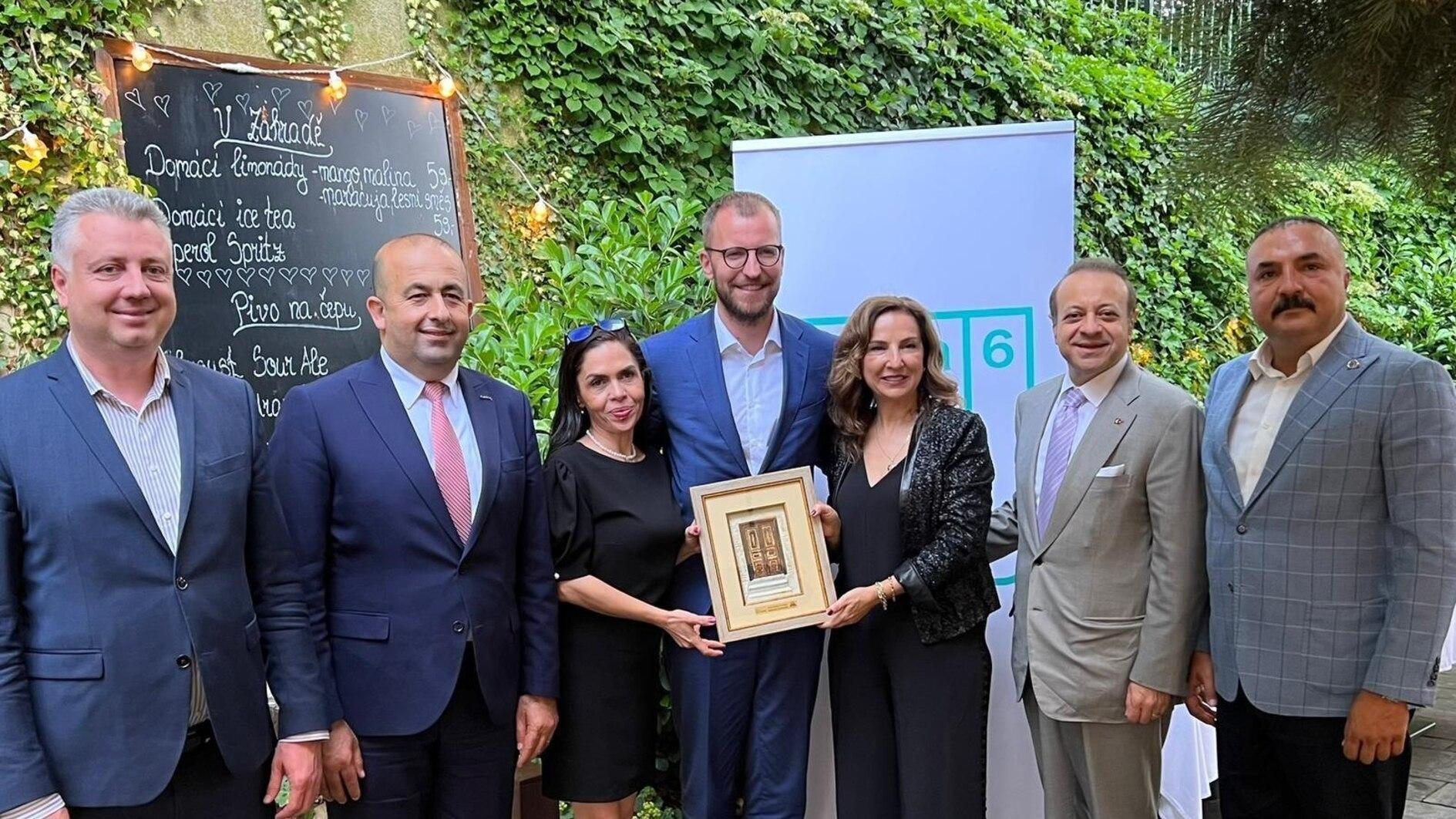Turkish deputy Parliament speaker vows to ‘correct coeducation fault’
ANKARA

Turkey’s deputy Parliament speaker Sadık Yakut, who is also a deputy of the ruling Justice and Development Party, gave a speech at the 14th National Child Forum. AA photo
A senior member of the ruling Justice and Development Party (AKP) has overtly voiced his objection to mixed-sex education, labeling the implementation of mixed-sex education as “a big mistake” and promising to correct the mistake in the near future.“Having girls and boys educated at the same schools in the name of a pro-West [approach] is unfortunately a mistake that has been [continually] made from the past up until now,” Sadık Yakut, a deputy parliamentary speaker, said Nov. 20 at a gathering held in Parliament on the occasion of Universal Children’s Day.
Boys and girls from 81 provinces of Turkey, who form the Children’s Rights Committee, attended the XIV National Child Forum, which was jointly held by the Family and Social Policies Ministry and the UNICEF Turkey Office.
Yakut’s controversial remarks came during a continuing storm over Prime Minister Recep Tayyip Erdoğan’s public objection to co-ed accommodation for university students.
“But when you look at those who come from the West to Turkey to open schools, for example, they are the Galatasaray Boys’ High School, the Italian Girls’ High School and the German Girls’ High School,” Yakut said during a forum which was also attended by Family and Social Policies Minister Fatma Şahin.
“They were opening separate schools for female and male students, particularly in Turkey,” Yakut said. “Unfortunately, I maintain that having had female and male students educated together until now has been a big mistake. Inshallah this mistake will be corrected in the upcoming period,” Yakut said without specifying an exact time.
In the first week of November, Erdoğan suggested new regulations could be drawn up to stop male and female students from living together, triggering accusations of religiously inspired interference in private life.
Later, members of the AKP and the Cabinet sought to calm down the impact of Erdoğan’s remarks, which have been widely condemned as part of what is perceived as an increasingly authoritarian style of governance, dominated by his tendency to interfere in people’s lifestyles.
The main opposition Republican People’s Party (CHP) leader Kemal Kılıçdaroğlu said on Nov. 5 that Erdoğan’s remarks opposing mixed-sex student accommodation actually hinted at his intention to abolish mixed-sex education.
“Male and female students do not even live in the same dormitories, they are already separated. But his [Erdoğan’s] main concern over this issue is not mixed sex dormitories; his real intention is to abolish mixed-sex education,” Kılıçdaroğlu said in his address to his party’s parliamentary group meeting.
Yakut took the podium after Şahin made a speech at the same gathering. The education rate among young children in Turkey now stands at 99 percent, Şahin said.
“Those who come from the southeast know very well; the view stemming from rigid traditions and customs features an understanding of not allowing girls to attend university in another province,” said Şahin, a lawmaker for the southeastern Anatolian province of Gaziantep. “But now we have universities in every province.”
Co-education has existed in these lands since the Tanzimat
Co-education in Turkey was implemented during the Tanzimat reform era of the 19th century, particularly in minority and foreign schools. During the Republican era, co-education became “essential” after the adoption of the Law on the Unification of Education in 1924.
The Fundamental Law on Education, dating back to 1973, also described co-education as “essential,” while noting schools for only one gender could still be opened, “according to the type, condition and necessity of the education.”
Yakut a founding AKP member
Yakut, a former judge and prosecutor, is one of the founding members of the ruling AKP. He was elected to the Parliament for the first time in 1999 from the Nationalist Movement Party (MHP).
Yakut then crossed to the floor to help found the AKP in time for the 2002 election. He has been elected three times over the ruling party’s term for the Central Anatolian province of Kayseri.
















